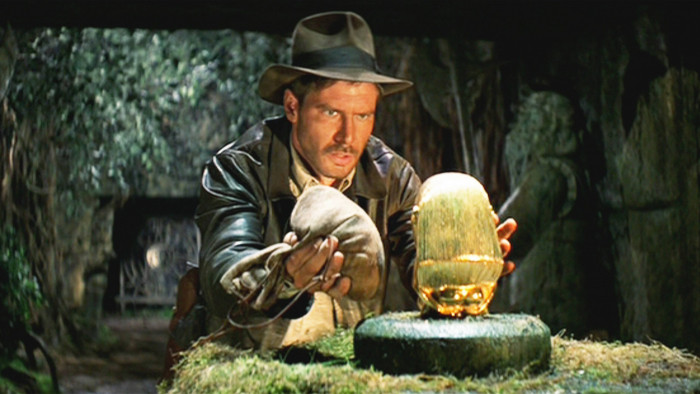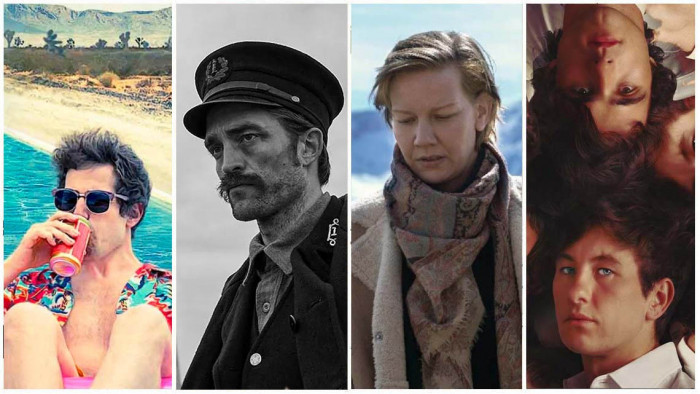Chinatown revolutionised the noir genre. Forty years on, Andrew Lowry finds out how
If TV and cinema have taught us anything, it’s that detectives are a complex bunch – on screen at least. One look at Matthew McConaughey’s Rust Cohle in True Detective, or Russell Crowe’s Bud White in LA Confidential, and it’s clear the job carries a serious challenge to one’s moral and mental health – and we owe this to one film: Chinatown. With Jack Nicholson’s sneer, an enduring archetype was born.
Before Chinatown, detective stories tended to be glorified morality plays, their heroes flawed, but on the side of justice. But Nicholson gave us private dick (by job and nature) JJ Gittes who makes his living snooping on cheating husbands. An update of late-Forties noir flicks, but with an injection of Watergate-era cynicism, Chinatown’s at once a highly political thriller about how rich bastards can get away with everything, and a psychosexual tragedy more fitting to a Greek drama. Forty years ago, the game was not only afoot, but changed forever.
Screenwriter Robert Towne had been offered $175,000 to adapt The Great Gatsby by The Godfather mega-mogul Robert Evans. He instead asked for – and got – $25,000 to write his own period story. As it took shape, instead of a Bogart-esque shabby gumshoe with a heart of whiskey-sodden gold, we get Jack Nicholson in his sleek prime.
LA LA LAND
The location, too, was different for noir: the blazing sunshine of Los Angeles, a city central to the plot’s background. LA shouldn’t be there – its natural water could barely fuel a Beverly Hills garden hose – so to expand the town in the Twenties, water was diverted from nearby valleys, developers’ greed destroying their agriculture. This provoked huge controversies – farmers tried to dynamite aqueducts several times – and LA-born Towne, whose father was in real estate, saw it first hand. “Some of it was almost within my memory,” he says. “It interested me as the backdrop to a crime story.”
So Towne set about converting the half-memories into a detective story. To simplify a tricky plot, Nicholson’s Gittes falls into a seemingly straightforward case tailing a wandering husband, which soon expands into murder, kidnapping, the fate of an entire city’s water supply, incest and a catastrophic climax. The ending is the reason the film has endured.
In a triumph of writing, the script dupes us into thinking Gittes is near to solving a murder, when he’s actually been edging closer to finding out his client – and later lover – Faye Dunaway, has been repeatedly raped by her property developer father (a metaphor may be in play here), and that the father is seeking power over the resulting daughter/granddaughter. Gittes tries to save them both, but ultimately fails. There’s nothing he can do, as he is told, “Forget it, Jake, it’s Chinatown.”
“I was buying a dog from a vice cop who worked in Chinatown,” says Towne, explaining that famous line. “He said there were so many languages and dialects, it was impossible to know what was going on. If you intervened you’d make things worse. The best thing to do was nothing. It’s the futility of good intentions. Is that pessimistic? You bet.”
INTO THE DARK
Towne’s original ending had been a little lighter, but was changed by director Roman Polanski, a man who knows about darkness. Growing up in Nazi-occupied Poland, Polanski had seen plenty of horror before going to Hollywood, where he’d later be responsible for his fair share, pleading guilty to the statutory rape of a 13-year-old girl in 1977, before fleeing the US for good.
Shortly before making Chinatown in 1969, Polanski’s wife, actress Sharon Tate, was murdered in their home by members of the Manson family. The grief-stricken director poured his anger into the film. His tragedy was never far from his collaborators’ minds.
“His way of processing it was by depicting horror as true to life as possible, to get it out of his soul,” says Diane Ladd, who played an ill-fated actress sent to dupe Gittes. “It wasn’t an intense atmosphere on set until the scene where my body was discovered. Polanski put me on the floor in this weird position. It must have been how he found his wife. It was horrible – one leg was one way and one was the other, and everybody was like, ‘Oh my God… was this how he found Sharon?’ He’d say there wasn’t enough blood, and we’d all freeze knowing what his memory was.”
Whatever the source of its black soul, be it the mind of Towne or Polanski’s very real pain, Chinatown is proof a film can bravely confront dark material, make money and move audiences. Its legacy in US crime storytelling is visible in almost every great on-screen detective, and its ending can still take your breath away. Says Towne: “We were just in it to make good movies. Would Chinatown be made today? Not a chance.”
(Images: Kobal/Moviestore Collection)
Latest
Related Reviews and Shortlists


The 10 best war movies of the 21st century









